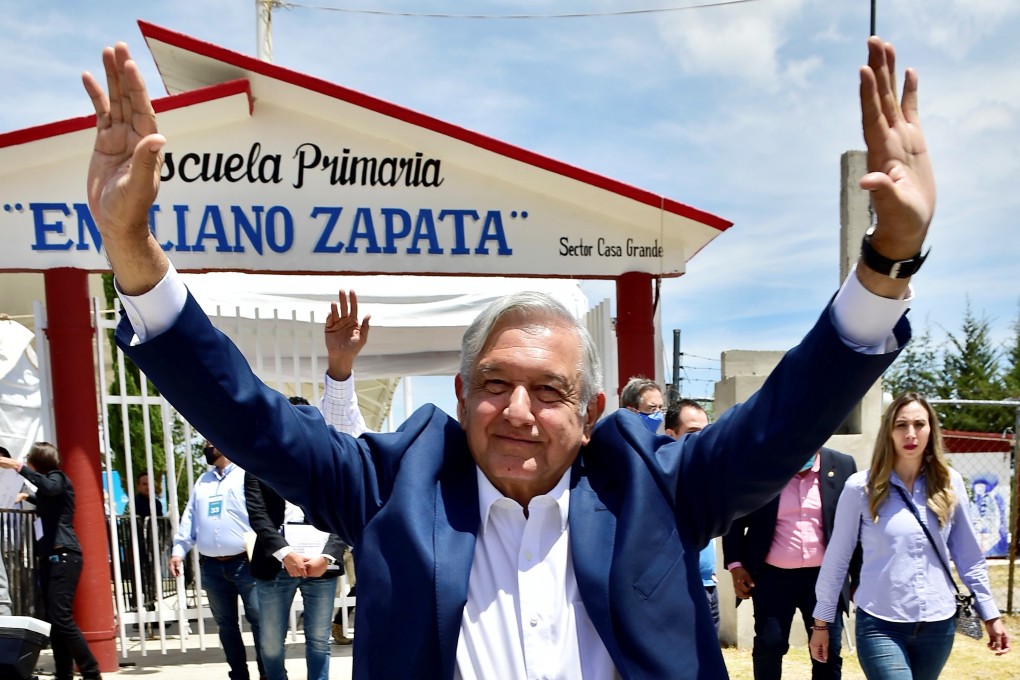Advertisement
Freeing El Chapo’s son prevented cartel slaughter that would have left 200 people dead, Mexican president says
- Ovidio Guzman Lopez’s arrest last October prompted cartels to lay siege to the streets of Culiacan, leaving military and police outgunned
- Lopez was released, in an embarrassing climbdown for authorities described by one journalist as ‘the capitulation of the state’
Reading Time:2 minutes
Why you can trust SCMP

Mexican President Andres Manuel Lopez Obrador acknowledged Friday that he was personally behind one of the most embarrassing episodes of his term – a manhunt in which soldiers captured and then released a son of the notorious cartel leader Joaquin “El Chapo” Guzman.
“I ordered that this operation be stopped and that this presumed criminal be freed,” Lopez Obrador told reporters.
He defended the decision, saying it likely saved hundreds of lives.
The arrest of Ovidio Guzman Lopez on October 17 led to hours-long gun battles and cartel roadblocks on the streets of Culiacan in northwestern Sinaloa state, leaving at least 14 people dead, according to official accounts.
Advertisement
The scenes of warlike violence stunned Mexicans watching a live broadcast from the besieged city. It ended only after outgunned military and police units retreated and handed Guzman over to his confederates.
The bungled operation drew widespread condemnation at home and abroad as a humiliating defeat and indisputable evidence that criminal gangs hold the upper hand in Culiacan and across broad swathes of Mexico.
Advertisement
At the time, the president voiced support for the retreat, but said that his security chiefs had made the decision. But on Friday, Lopez Obrador said he had chosen the best alternative in difficult circumstances.
“If we hadn’t suspended [the operation] more than 200 innocent people … would have lost their lives,” the president said.
Advertisement
Select Voice
Select Speed
1.00x